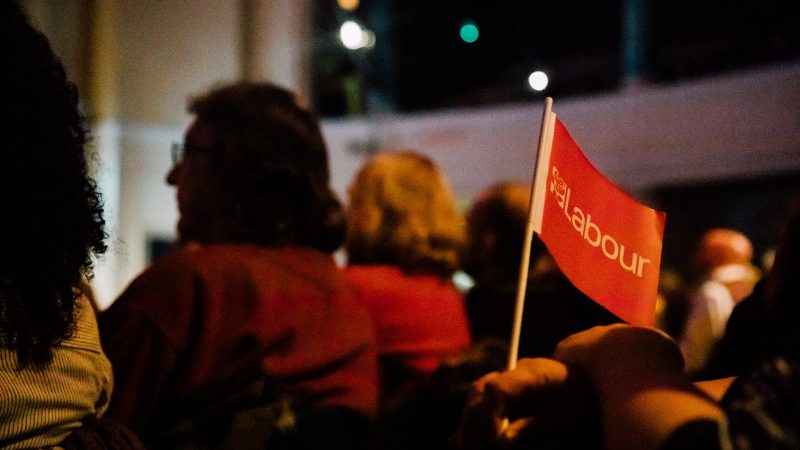
Labour members have been vying for support in elections for a number of committees ahead of conference, while local parties have held meetings to pick new executive committees. These internal contests have awarded victories both to supporters of Keir Starmer and to the Labour left.
Positions on the CAC, Labour’s conference arrangements committee, are up for grabs: two in the Constituency Labour Party (CLP) section and five in the general one. Those elected to the CAC have an important role in deciding the timetable and topics debated at the annual conference. There are also four places going on the national constitutional committee, or NCC, which is the party’s top disciplinary body. Plus, equalities positions are up for election on the Young Labour national committee: BAME, women, LGBT+ and disabled members officers.
Left Labour groups and the Labour to Win umbrella, comprised of Progress and Labour First, encouraged members to nominate their preferred candidates for the committees before the nominations period closed on June 11th. The threshold for gaining a place on the ballot (put to all eligible members) in the CAC CLP reps election is five CLPs. For the NCC, candidates must be nominated by their own local party. Left-backed candidates did better in both. Of the four who met the threshold for the CAC CLP rep ballot, Seema Chandwani secured 87 nominations and Billy Hayes 81, while Shama Tatler and Mary Wimbury got 37 and 30 respectively. For the NCC, left candidates received between 65 and 69 nominations each while hopefuls to their right secured between 30 and 38, with nine in total making the ballot.
In the Young Labour contest, contenders needed the nominations of five CLPs/Young Labour branches or one affiliate organisation. Again, left candidates received the most support: Abdullah Okud got 25 CLPs and two affiliates compared to Amen Tesfay’s eight and three; Grace Ashworth secured the backing of 35 CLPs against Roshi Woodroffe Northover’s 13 and four; Torr Robinson achieved 23 CLP nominations and three affiliates to Kira Lewis’s 21 and four; and Aisha Malik-Smith bagged 27 CLPs and two affiliates to Leon Alleyne-McLaughlin’s 14 and four.
Momentum co-chair Andrew Scattergood described the results as “further evidence that there is a socialist majority amongst the membership of the Labour Party”. But these are, or course, only nominations. In the case of the NCC, any victory could be short-lived as Starmer did pledge to abolish the body during his leadership campaign, though it is not clear yet what role the NCC will play once an independent complaints process is set up, which must be done by December.
Several local parties have recently seen executive committee changes. At their annual general meetings, members pick who they want to serve on their ‘EC’. Momentum lost control of the Hendon local party at its AGM on Sunday after a new 13-person executive committee was elected unopposed. The left-wing group did not field candidates in the contest. Elsewhere, Gary Lefley and Jewish Voice for Labour cofounder Naomi Wimborne-Idrissi were replaced as chair and vice-chair of Chingford and Woodford Green Labour. Labour First secretary Luke Akehurst described it as “the latest Momentum bastion to fall to mainstream Labourites”.
Both the Labour left and Starmer supporters can claim victories in the party’s internal politics. But what does this mean for the leader? In the wake of the local election results and the historic Hartlepool by-election defeat, tensions are heightened. Starmer has faced criticism over lack of vision, his favourability ratings have been falling, Labour has gone backwards in the polls and polling today saw 69% of members say Greater Manchester mayor Andy Burnham would make a better leader. Following the sacking/promotion of Angela Rayner followed by a reshuffle, talk of a leadership contest continues. A year after his election, with resounding support from members and the Parliamentary Labour Party, rumours of potential leadership challengers are remarkable. Starmer is now facing the Batley and Spen by-election. It is not a ‘Red Wall’ constituency, as it’s often dubbed, but it is one that Labour has held since 1997. Andpolling has suggested it could well go blue.
In the polling of Labour members released today, 41% said Starmer should step down if the party loses the seat (48% thought he shouldn’t). But the YouGov survey was not good news for those on the left hoping to oust the leader either. Burnham, whose relationship with the left is far from straightforward, is not eligible to stand as leader since he is not an MP. Of those who can stand currently, Yvette Cooper would receive the most support at 35%. Lisa Nandy would win the support of 13% of members; 12% said they would give deputy leader Angela Rayner their first preference; former leadership challenger Rebecca Long-Bailey would get 11%; and Richard Burgon 6%. 55% of members still felt that the Labour leader is “doing well”, which is close to the 56.2% of first preference votes that saw him elected. Starmer’s prospects may be uncertain, but so too is the outlook for the left.




More from LabourList
Letters to the Editor – week ending 15th February 2026
‘Labour council candidates – it’s tough, but all is not lost’
‘Labour won’t stop the far right by changing leaders — only by proving what the left can deliver’